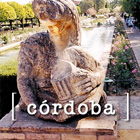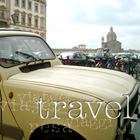
|
CÓRDOBA: JEWEL OF LEARNING ANCIENT & NEW Córdoba was the preeminent city in Moorish Spain: educated, wealthy, populous, refined. The city was the intellectual capital of the Caliphate of Al-Andalus. It was here that Maimonides and Averroes dispensed their great philosophical works, where algebra was developed, and where European philosophy was rescued and restored to prominence by eager Moorish students and translators.
Córdoba's whitewashed Judería, the old Jewish Quarter, is a romantic journey back in time. Though tourist traps and superfluous inauthenic merchandise abound, you can walk the narrow, reflective neighborhoods that some of the great minds of Moorish Spain inhabited, even experience the old-fashioned appeal of the zoco, or the market square where artisans still keep shop and conduct their craft in open workshops. Perhaps the most famous structure in Córdoba is the Mezquita, the great mosque. Built on the site of a Roman temple, which was later shared by Christians and Muslims, the Mezquita became the pride of the city, so much so that throughout the centuries, Christian cordobeses have fought to preserve the integrity of the structure as built, even when the emperor Carlos V sought to install a chapel. Today the Mezquita draws tourists from around the world to its well-preserved, expansive exemplary interior. The structure still preserves the original architectural design and layout, and serves as a window on the community atmosphere of Moorish Córdoba. The earliest traces of civilization at Córdoba date to the late Bronze Age. Archaeological findings suggest an indigenous population at a settlement known as Corduba. During the 2nd Century BC, the Romans began to use Corduba as a station for troops and provisions. By 152 BC, it was a permanent Roman colony. It remained one until the fall of the Roman Republic. With Caesar's victory over Pompey and the establishment of a Roman autocracy, Córdoba entered a period of historic decline. Seneca, the philosopher, and Lucano, the poet, hailed from Córdoba. Seneca is thought by many to be the greatest mind of his time, and maybe the most important ancient Spaniard. His stoic philosophy continues to apply itself with agility to crises, conflicts, and everyday dilemmas even today. Córdoba today is full of references to traits supposedly true to all cordobeses, which are derived from his philosophy. Under the Roman Empire, Córdoba became the capital of Baetica, the province extending across southern Spain. The Vía Augusta was built during this period, and is still preserved today. It brought commerce and administrative traffic over the Guadalquivir and strengthened Córdoba's position as the nerve center of Baetica. Under Diocletian, the status of capital would be transferred to Sevilla (then Hispalis). At this time, Christianity began to spread throughout Córdoba, and Baetica. In the 5th Century, Córdoba was taken by the Vandals, which some believe later developed into the regional name of Andalucía. The Muslim name for Spanish territory under the Caliphate was Al-Andalus, which may have meant "land of the Vandals". When Recarred (or Recadero) pledged his allegiance to the Cathollic Church, abandoning the divergent Visigoth strain of Christianity, the Basilica San Vicente was built, on the site of a Roman temple, the site of the Mezquita today. Córdoba was subject to endless civil wars among nobles competing for power over the city and the region. These civil wars may have facilitated the swift and successful invasion of the Moors from North Africa, and the subjugation of much of Spain to muslim rule under the Caliphate. At the dawn of 711 AD, the Muslim invader Tariq overtook the city. But the seizure was less a conquest than a voluntary transition of power. A pact was agreed to that protected the rights of existing inhabitants, and the Moors installed a governor in the Visigothic Alcázar. Within a few years, Córdoba was named the capital of the territory of Al-Andalus. Territory was governed by an Emir, to whom the Caliph of Damascus granted independent rule. Within 50 years, with intensive restoration and expansion, the city would ascend to a heralded status, already renowned as the jewel of Al-Andalus. The city would become known throughout Europe and the Arab world for its scholarship, its vibrant economy, its openness and tolerance, and for its success in urbanization. The greatest library of its time was at Córdoba, and the University thrived, excelling in mathematics, science, astronomy, and reviving and redefining ancient Greek and Roman philosophy. Hebrew philosophy reached its zenith during the jewelled age of Córdoba. [Full Profile]
For more travel listings, original narratives and destinations, consult Sentido's sister site for travel, CavaTravel.com... |
|||||||||||||||||||||||||||||||||||||||||||||
|
||||||||||||||||||||||||||||||||||||||||||||||
















